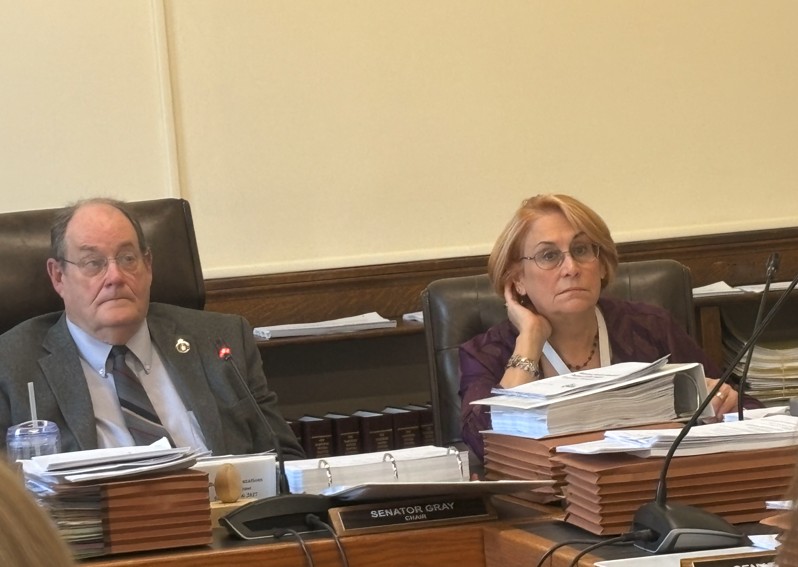By PAULA TRACY, InDepthNH.org
CONCORD – A meeting has been requested by a key Senate budget lawmaker between the Office of the Child Advocate and Health and Human Services after the House Republicans voted to eliminate the child advocate, claiming they provide duplicative services.
State Sen. James Gray, R-Rochester, chair of the Senate Finance Committee, said he believes there can be an agreement crafted which provides for a clear division of roles and tasks that would allow the Office of the Child Advocate to remain and satisfy those critics.
The 2018 advocate program was set up, similar to an ombudsman, to provide the public with input in child protective services issues that arise.
The House voted to eliminate the office in the budget but that has not been supported by Gov. Kelly Ayotte, a Republican.
The House took a knife to the state’s overall budget facing low revenue predictions and particularly cut the Health and Human Services budget by almost $270 million compared to Ayotte’s proposal.
The Senate Finance Committee spent both Monday and Tuesday afternoons going over the impacts to the DHHS’s seven distinct divisions which all face some form of change.
There is hope that on Wednesday when the Senate Ways and Means Committee meets at 9 a.m. that a more favorable revenue forecast will come forward to allow some of the House cuts to be reduced.
Marie Noonan, division director for the Division for Children, Youth & Families, testified in a second day of hearings on impacts to the DHHS budget that there has been significant change and growth in this area of state government over the past six years which investigates child abuse and neglect and provides rehabilitative services.
“We are at a critical point right now,” she said. “We need to ensure families have the resources they need and the staff to respond,” she said.
One piece of good news is that there are fewer children in need of DCYF out-of-home care.
In 2024 DCYF served 31,776 children and youth or about 70 percent in child protective services and the rest in juvenile protective services.
Fifteen positions of the more than 500 child protection positions have been unfunded in the proposed House budget including social workers.
Gray asked Noonan what the impact would be to the loss of the child advocate.
“Our work will go on as usual,” Noonan said.
Morissa Henn, deputy commissioner of DHHS interjected from the audience.
She said these are collaborative roles with the child advocate and that is something that the governor has discussed and understands.
“They are complementary,” Henn said. “It’s not about a watchdog.”
Gray asked his staff to reach out to Cassandra Sanchez, the child advocate, and for her and DCYF staff to come to his office to see if something can be worked out.
Sen. Cindy Rosenwald, D-Nashua, asked if it was the Child Advocate who investigated and brought two children from an abusive state placement in Tennessee and Noonan confirmed that it was.
DCYF is not set up in that way but provides clinical and a variety of care services to children in need of service.
Noonan said reduction of funding for children’s residential treatment will put children with the highest needs at risk. This includes almost $7 million reduction for DCYF and $4 million for the Bureau for Children’s Behavioral Health.
The House eliminated funding for a master licensed alcohol and drug counsellor contract of about $2 million a year.
Since July 2024, 183 youths have been helped in this program, Noonan said.
SUNUNU YOUTH SERVICES CENTER
Budget discussions Tuesday also included discussion about the Sununu Youth Services Center. There are 17 youths currently at the Sununu Center in Manchester, formerly called the YDC, which is due to be closed and relocated to Hampstead in the coming years.
The budget per year now is about $14 million.
The House decreased the budget for staffing needs by about $2 million the first year and $3 million in FY 2027.
Rosenwald said she is always amazed at how much is spent on the dozen or so kids in the YDC.
“It’s like one and a half million dollars per child per year. How do we rationalize throwing more money at this?” she asked.
Noonan said the state has come a long way since 2022 and worried about the future stability as it relates to staffing, morale, and said if the House budget passes quality support would suffer.





